This post may contain affiliate links and Corporette® may earn commissions for purchases made through links in this post. As an Amazon Associate, I earn from qualifying purchases.
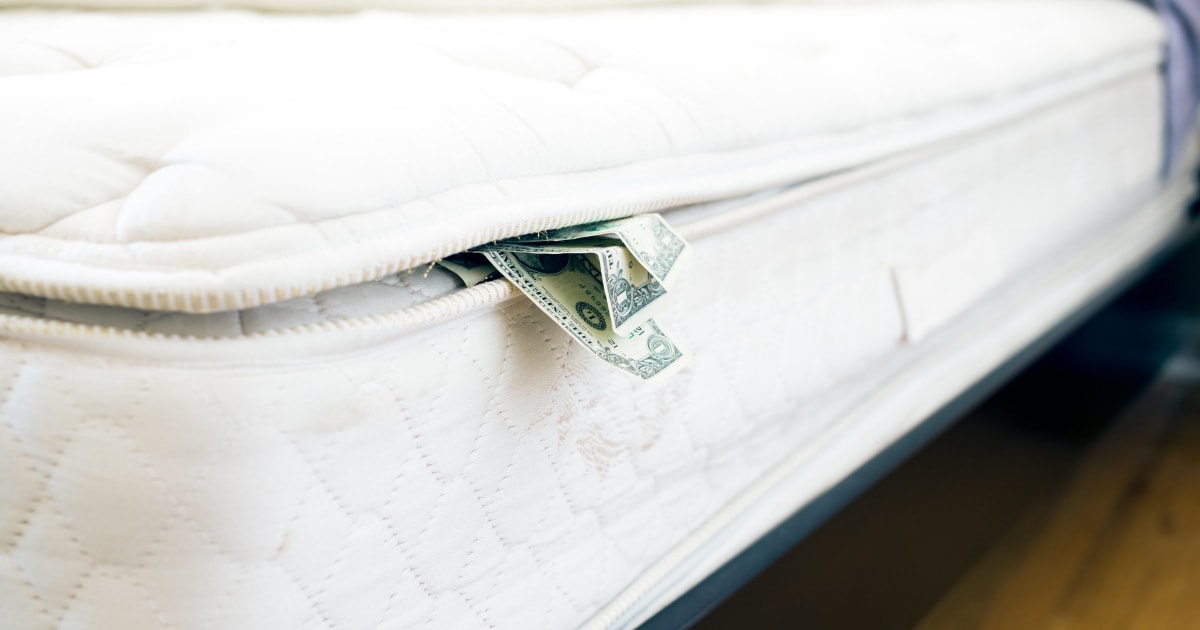
We've talked about how to automate your savings, what your money roadmap should look like (what to do and in what order), and — several times over the years! — we've talked about emergency funds. But it's been far too long, so let's discuss… readers, where do you keep your emergency fund right now? Do you move it around if you see a markedly better rate? I know there's been a lot of talk among the readers about how to prepare for a recession — are you doing anything differently with your emergency fund to prepare for that? (N.B. Now is probably not a great time to assume your emergency fund is safe in the market.)
To frame the discussion, as well as refresh you if you're unfamiliar — the suggestion I always see is to keep three to nine months of living expenses (mortgage, rent, loans, food, basic living needs), easily accessible in case you’re laid off, fired, quit, or are otherwise unable to work — or if you have some other huge unexpected expense, like if your car breaks down or you get in an accident and have bills to pay.
{related: how to calculate your e-fund}
Experts are divided, but I've always thought these were the best options for where to keep your emergency fund (with my personal preference being heavily weighted towards the first two):
Online-Only Savings Accounts like Ally. The big pro here is that the money is really fluid — you can get it in a day or two, it's not locked down at all. The con is that a) it will take a day or two to get your money, and b) the interest rate is also fluid. So, for example, in my own recent memory the interest rate they've offered has been anywhere from just over 1% to as high as 2.20% — at the moment it's 1.90%. It's still a lot better than the .5% (maybe?) that brick and mortar banks (like Chase Savings) would offer, but it's a bit annoying that it isn't locked in.
Certificates of Deposit or CDs, also offered at places like Ally. The pros and cons here are almost exactly opposite the online-only savings accounts — the big con is that you agree to a set term (anywhere from 12 months to 5 years) to keep your money locked away… so if you decide you want to buy a house midway through the term, you'll be paying a penalty fee if you try to take your money out. (If this is a concern, you should be looking exclusively at penalty-free CDs.) The big pro, though, is that your interest rate is locked in. Some people ladder CDs so that they come due at different times — so, for example, some money is locked away for 6 months at 1%, more money is locked away for 12 months for 1.5%, and even more money is locked away for 24 months for 2%. The problem I've always had with these is that to commit to having your money be unavailable I'd want a great interest rate, and I just haven't seen anything really worth the trouble of building and maintaining the ladder. (I'd love to hear from readers if you ARE comfortable with ladders, either with CDs or bonds!)
Money Market Savings Accounts – I had to check because I wasn't sure I had any — but in fact I do have one of my random little Ally accounts set up as a money market savings account (instead of an online savings account) — I knew I had one that wasn't a variable account. The interest rate at this one has been stuck at .9% for a while, but apparently if I kept more than $25,000 in the account the rate would go up to 1% (and the crowd goes ooooooo) — and I could write checks directly from the account. The cons are that you can get a much higher interest rate through the online savings accounts, and may have a minimum deposit and other requirements.
Money Market Funds – I usually think of these as the place your cash is held if you transfer it into an online brokerage like Vanguard or Schwab — useful if you need to get retirement money into your account before a certain date but don't have time to research (or are expecting a big market dip soon) — or if you want money available for other quick investments. When you put money in a MMF, you're actually buying shares in a fund that invests in cash — so in theory the rate will not drop below $1 a share. But: these are also variable accounts, meaning the percentage changes — in recent years they really have not been offering any good interest rates that I'm aware of. The big con with these money market funds is that while your money is available to invest at the drop of a hat, a) the money is not FDIC-insured, so in the unlikely event the bank goes bust, your money may go poof — and b) because they're variable accounts, it's slightly possible to lose money in them.
For my $.02, almost all of our emergency funds (I have one for the family and one for the business) are in Ally, where we're getting 1.90% (shoot, that was just up over 2%!) at the moment. That rate changes with the market, though, so I've been pleased to see it go up. A year or two ago I saw a few CD offers that seemed flexible and like a good rate to lock in, so we've also got a small portion in CDs that are earning between 2.10% and 2.75%.right now. (I've written before about how I'm a bit obsessive with Ally and use it to amortize for a ton of different savings goals — it's nice to see the interest accrue.) Of course, none of this compares to the old days (let's say 1998-2008), when my memory is that my money market fund in Schwab made almost 7%. (That said, I'm going to have to look to confirm that — I remember it being a money market fund, but I don't remember it taking a big dip like my investment accounts did during the last recession. Hmmn.)
Readers, how about you — where are you keeping your emergency fund money this year?
Further Reading:
- Money Advice the Experts Don't Agree On: Emergency Funds [Lifehacker]
- Best Places to Keep Your Emergency Fund [The Balance]
These are some of our latest favorite financial books for beginners:
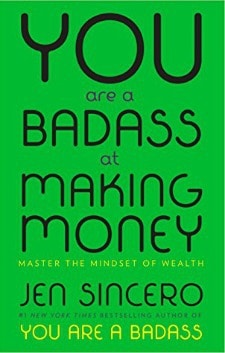
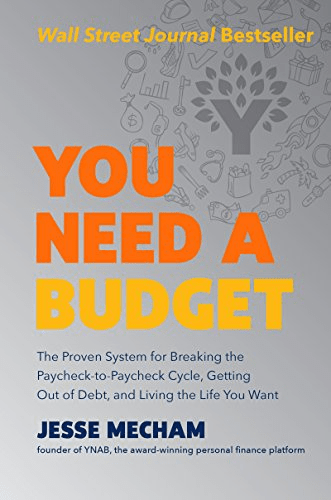
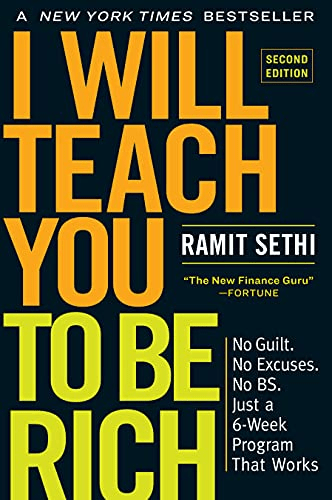
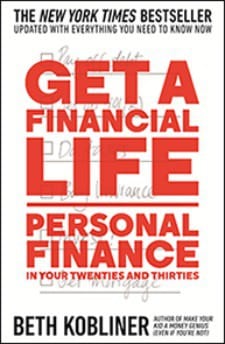
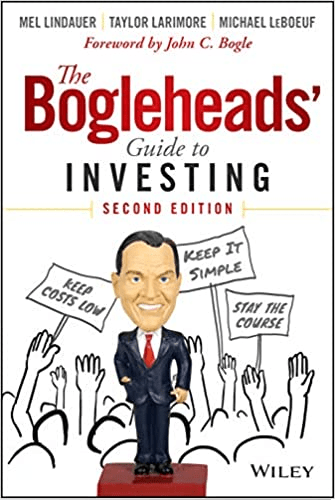
Stock photo via Deposit Photos / Boyrcr420.


Anon
Not exactly the subject of this post, but I keep about $500 to $1,000 in cash in the house. If wallets are stolen, a natural disaster takes down electricity and credit cards don’t work, etc., there’s money to get through until replacement cards arrive or systems are back up and running.
Anon
I was just going to ask about this! I feel like I probably should be keeping some amount of cash on hand at home for emergency scenarios. Haven’t thought much about how/where or how much yet, though.
Anonymous
We also keep $500 in cash in our house for emergencies. I don’t feel totally comfortable keeping more than that in the house, but that $500 could really come in handy if there is an emergency that takes down electric, phone and cell service. Was talking to a coworker yesterday about the hurricane; she said her mother went through a previous storm where her house did not flood, but everything around her was flooded, and the whole area lost power, water, phone and cell service for 5 days. Her mom relied on what food she had around but ended up buying a couple of things she needed from a neighbor – with cash.
Anonymous
I’m glad your mom had cash but all I think is wow, what a stingy neighbor! I would have (and my family has) happily shared resources with neighbors in situations like this.
Ellen
I keep no cash, just b/c Dad is my source of cash. Whenever I have an issue and I need something quick, he buys it for me, so that is better then an emergency fund. YAY! He manages all of my money so I am pretty sure he pays himself back.
Anonymous
We do this too. BTW, should be in small bills – hard to make change if there’s no power and you don’t want to have to overspend if someone can’t.
anon
I do this too – $500 plus an extra credit card, together with important documents. The theory being that it’s a grab and go bag. Of course, I tap into it all the time.
Otherwise, I keep about 3 months in an Ally account, but the tax rate on the interest kills the return, so I also keep 3 months in a Vanguard brokerage account (50/50 stock and bonds, tax-managed).
M
Oh, I hadn’t thought of this! Thanks for sharing!
Anonymous
We keep 1 month of expenses in a checking account, 6 months of expenses in a money market savings account (2% interest) and 6 months worth of expenses in laddered CDs (we renew a CD every six months, so we have access to an additional 3 months worth of expenses every six months – current rates are around 2.5%).
In-House in Houston
American Express has a personal savings account that also earns 1.90%. It was above 2% when I opened it, but it’s come down a little. I saw an advertisement on network TV last night for an interest rate for Green Dot that is 3%. I looked into it and on Nerd Wallet the description says it only applies to $10,000 or less and you can only access the 3% interest rate on the account anniversary. Does anyone have any experience with Green Dot?
anonandon
Honestly, I keep the bulk of my savings in an online account earning 2%, but I consider my emergency fund to be “I could walk up to an ATM and get it within 24 hours” so it’s in my old hometown savings account earning like .15 (it’s linked to my checking account). It’s about 10k whereas I have more like 30k in the online one (I’m only two years out of college please don’t judge my savings!)
Any advice on what I should be doing with my money?
JuliaBOS
$40k in savings two years out of college sounds really good to me! Today is the one-year anniversary of my first paid post-law school job, and I definitely don’t have anything close to that much saved. I keep most of my savings in an online account earning 2% too, some of it is invested with Wealthfront, and a small chunk is in a savings account connected to my online-only checking accounts (for the ease of instant transfer, mostly, although I think the APY is 2% on that too). The timing of this post is really perfect, though – I’m about to receive some inherited cash, and I’ve been thinking about the best way to save what’s left over after paying off student loans, so I’m curious to see what else folks are doing to keep their savings both flush and safe.
Anonymous
That is not a small amount of savings. It is 3x what I made my first year out of college, and much more than the total of what I took home in the first two years.
RinBos
That is not a small amount of savings. It is 3x what I made my first year out of college, and much more than the total of what I took home in the first two years.
Lana Del Raygun
I have an Ally savings account with an attached checking account, so I can the money out easily by writing a check to myself if I need it (but I didn’t get a debit card so I’m not tempted to spend it randomly).
Burgher
I have my emergency savings in a Betterment account. Not terribly safe as far as market fluctuations go, but you can change how aggressive you are very easily. I can’t handle earning around 1% interest, and have historically earned around 4-6% in this account.
Anon
I’m also curious to hear what others say–I don’t have an emergency fund earmarked specifically, but have pretty significant savings that I add to on a monthly basis, and am not sure what next steps are. I put about half my overall savings in an online savings account at 2.20%, that I think of as cash on hand (limited to 6 withdrawals a month, but that’s doable for a true emergency, or for a longer-term, big withdrawal)–obviously not $X thousands of dollars out of an ATM, but cash within a couple of business days. The rest of my money is in a credit union savings account earning about .10% (terrible), but I think of it as very safe and I’ve been using that bank since I was a kid.
Starting to push FDIC insurance limits though–what do folks think of as the next best option? Treasuries? I’m willing to go with an index fund or something similar, but don’t know where to start (and am just so conservative overall that going anywhere near the market makes me very nervous). Any recommended baby steps for folks who don’t want to see their savings decimated, even if they don’t ‘need’ the money? Maybe just a book that will be make me believe in the financial soundness of the U.S. government and/or the overall economy again? Joking–sort of.
rosie
is this sponsored by Ally? if it is, I don’t see that indicated anywhere.
Kat G
Nope! Thank you for reading!